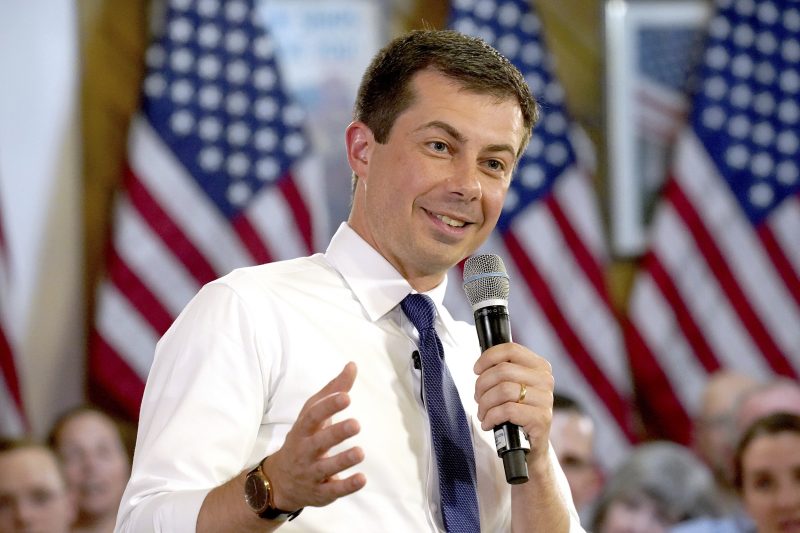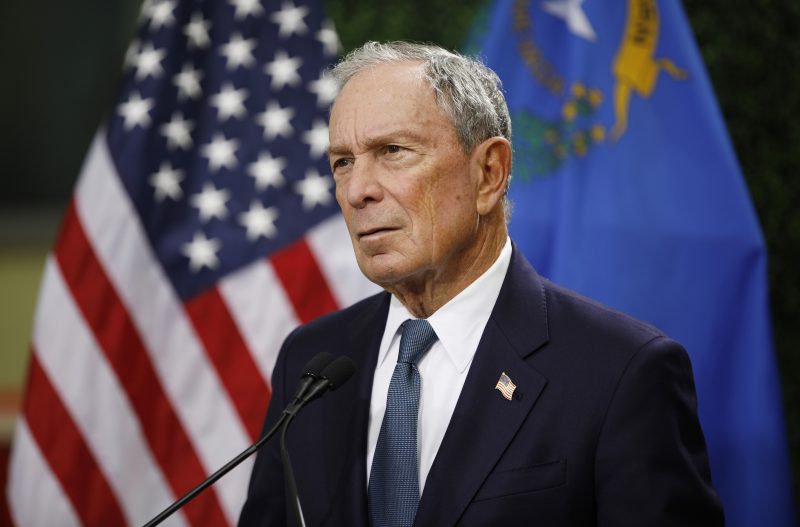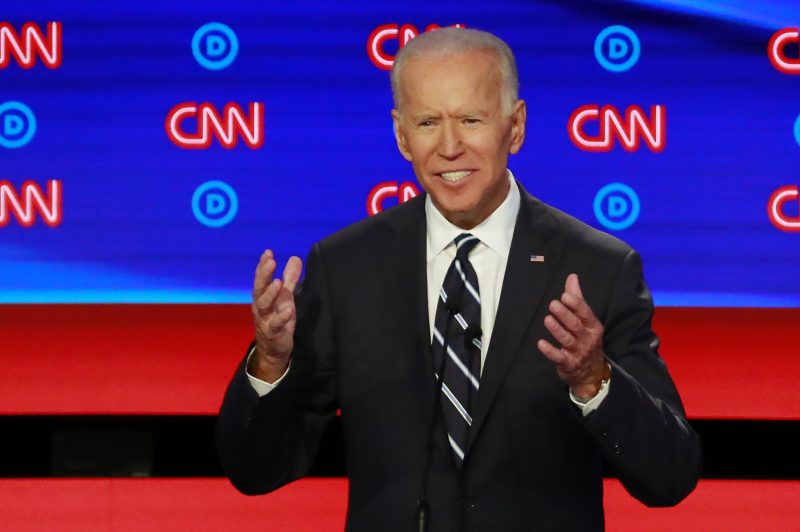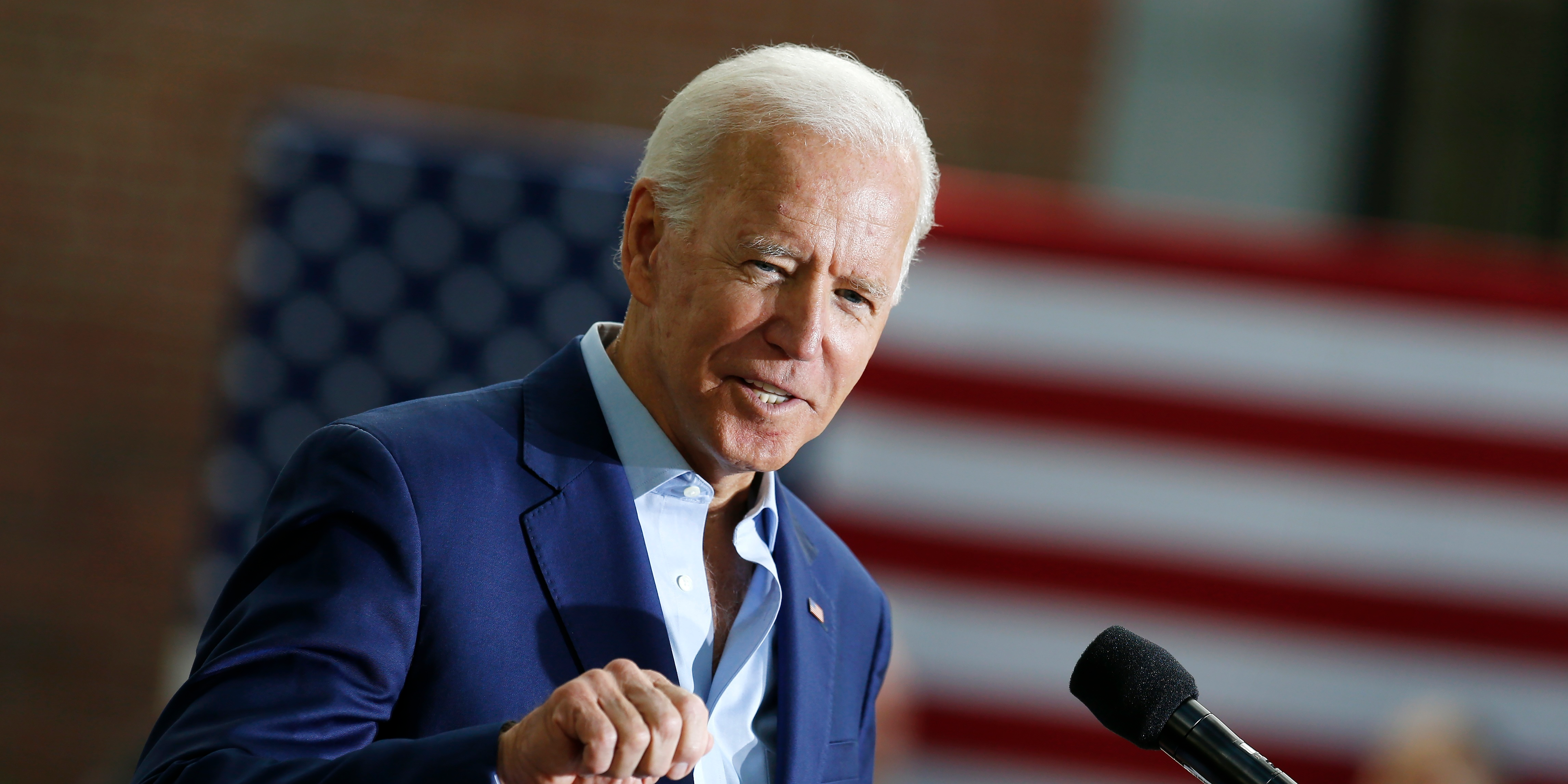- We’ve combined Insider’s polling and the results of Morning Consult’s daily survey of the 2020 Democratic primary to create a power ranking of 2020 candidates.
- With just three days to go before the Iowa caucuses, every day becomes a crucial make-or-break opportunity for all the candidates.
- Former Vice President Joe Biden is first in our ranking, followed by Sens. Bernie Sanders and Elizabeth Warren.
- Here’s what our power ranking looks like as of January 31, 2020.
- Visit Business Insider’s homepage for more stories.
With 11 major candidates in the race, the Democratic 2020 presidential field is set to be one of the largest, most competitive, and most unpredictable in modern history.
To help make sense of where all these candidates stand, Insider has been conducting a recurring SurveyMonkey Audience national poll. You can download every poll here, down to the individual respondent data.
Read more about how the Insider 2020 Democratic primary tracker works.
We’re mainly interested in using our polling to figure out:
- What percentage of Democratic voters are familiar with each candidate.
- How Democrats rate each candidate's chances of beating President Donald Trump in the general election.
- If a given candidate were to drop out of the race, who that candidate's supporters would flock to next.
We've combined Insider's polling and the results of Morning Consult's daily survey of the 2020 Democratic primary to create a power ranking of declared and potential 2020 candidates.
With the Iowa caucuses nearly here, the race is heating up, and each day presents a crucial make-or-break opportunity for the candidates. Recently, we said goodbye to former Rep. John Delaney, Sen. Cory Booker, and Marianne Williamson, who dropped out of the race.
Last week, we downgraded Sen. Amy Klobuchar and Rep. Tulsi Gabbard but upgraded the businessman Andrew Yang.
Here's what our ranking looks like as of January 31, 2020.
11: Rep. Tulsi Gabbard of Hawaii

Gabbard has some serious viability problems among Democrats.
Not only do a significant proportion of respondents in Insider polling say they are unhappy with her as the nominee compared with her rivals, but Gabbard has not been able to consolidate support in a meaningful way.
Despite being one of the first to enter the race, Gabbard is still polling at 1% in Morning Consult and is considered a less viable opponent to President Donald Trump in the general election than most other candidates.
While Gabbard's performance earned her lots of praise from right-wing media and even the Trump campaign, it's exceedingly difficult to see how it helps her win over Democratic primary voters.
Gabbard's decision to spend her precious resources and money seeking $50 million from Hillary Clinton in a lawsuit she is likely to lose instead of focusing on courting voters indicates she may not be running a completely sincere campaign for president, landing her in the bottom of our ranking.
Read more about Tulsi Gabbard's campaign.
10: Former Gov. Deval Patrick of Massachusetts

Like Michael Bloomberg, Patrick made a late entry into the race, officially announcing his campaign on November 14.
While Patrick hasn't been very active on the political scene for the past few years, he's led a long career in business and politics. He served as the governor of Massachusetts from 2007 to 2015, and he was most recently a managing director at Bain Capital, the private-equity firm founded by Mitt Romney.
Patrick will have an uphill battle in his presidential bid, and it's almost impossible to see a clear path to his winning any primary contests, much less the nomination.
He's missed the filing deadline for two key Super Tuesday state primaries, in Alabama and Arkansas, and unlike Bloomberg he doesn't have billions of dollars in personal wealth to draw from.
More important, Patrick doesn't seem to have a clear rationale for running for president other than trying to position himself as a unifying Obama-type figure - the same lane Biden is occupying.
Governor @DevalPatrick was supposed to have an event at Morehouse College tonight. An organizer with the college who planned the event told CNN that Patrick cancelled the event when he arrived and learned that he would not have an audience. (Note, two people came, not pictured) pic.twitter.com/CzNjWYcWKJ
— Annie Grayer (@AnnieGrayerCNN) November 21, 2019
Read more about Deval Patrick's campaign.
9: Sen. Michael Bennet of Colorado

Despite being a relatively savvy politician, Bennet - who has been in the US Senate for 10 years - has the distinction of being both the least recognized and worst-polling person with any political experience in the 2020 field.
Bennet is at 1% in Morning Consult's polling, and his would-be constituency has not materialized.
Bennet moved up two spots, from 16th to 14th place, in late August thanks to his fellow Rocky Mountain and West Coast-based rivals John Hickenlooper and Jay Inslee dropping out of the race, but his practically nonexistent fundraising and lack of debate qualification place him at the back of the pack.
To make matters worse for Bennet's already largely irrelevant campaign, he has been stuck in the US Senate as a juror for Trump's impeachment trial.
Read more about Michael Bennet's campaign.
8: Tom Steyer

Steyer achieved billionaire status as an investor and hedge fund manager - but he has since focused his efforts on advancing Democratic causes with two organizations, Need To Impeach and NextGen America.
He entered the race late, on July 9, and has pledged to spend $100 million of his own money on it. For context, the highest-fundraising candidate of 2019's second quarter - Pete Buttigieg - raised $24.8 million.
In determining where to place Steyer in our ranking, we wondered: "Which candidates are worth more than Tom Steyer and $100 million?"
Given the TV ads and campaign infrastructure that money can buy, we placed him ahead of several of the lowest-polling and lowest-fundraising candidates, but we're still not sure that $100 million can buy him more support and better polling numbers than the ones above him.
We bumped Steyer up one spot on October 25 for qualifying for the fifth Democratic debate and moved him up another two spots on November 1 because of his strong polling, tied for fourth place at 9% in early primary states in Morning Consult.
But after spending close to $50 million of his own money on his presidential campaign, Steyer still has largely failed to articulate a clear rationale for his candidacy before the first voting contests - and has been upstaged by his fellow billionaire Michael Bloomberg.
Read more about Tom Steyer's campaign.
7: Sen. Amy Klobuchar of Minnesota

Klobuchar is relatively well-known, but she's still largely overshadowed by some of her Senate colleagues and is polling at 2% in Morning Consult.
While Klobuchar memorably launched her campaign in a snowstorm, her campaign has failed to gain much traction in light of Biden dominating the centrist lane.
We dropped Klobuchar down to 12th place during the week of October 11 as she was polling at just 1% in early voting states in Morning Consult - an ominous sign for a candidate whose strategy revolves around winning in Iowa and New Hampshire.
But more recently, Klobuchar is distinguishing herself as a strong candidate and making a play for a top-tier showing in Iowa.
Klobuchar had a good few months with a strong fourth-quarter fundraising preformance and a rock-solid showing in the January 14 debate that positioned her for a breakout performance in Iowa.
But then she was required to be in Washington, DC, six days a week for Trump's impeachment trial in the crucial weeks before the state's caucuses.
And while she got half of a New York Times editorial board endorsement, it is the official policy of the Insider data team to round down when it comes to half-endorsements.
Klobuchar's half-endorsement also had the unfortunate side effect of reviving some of the coverage surrounding the years' worth of allegations that Klobuchar has routinely mistreated her staff, many of which she has not publicly denied.
Those stories may resonate mainly in niche political media circles, but the senator can't afford any negative coverage at this point in the campaign.
Considering that Klobuchar's strategy revolves around winning delegates in Iowa but she remains stuck in the low single digits in key early states and was unable to personally campaign in Iowa for much of the past few weeks, we bumped her down a place.
Read more about Amy Klobuchar's campaign.
6: Andrew Yang

Yang, despite the low name recognition that accompanies running for president without political experience, is actually doing fairly well in Insider polling.
He isn't a favorite by any measure, polling at 4% in Morning Consult, but his online army of supporters and meme creators, known as the Yang Gang, has helped him sustain a buzz around his campaign for months despite his lack of political experience.
While Yang is still an underdog in the race, his grassroots support shouldn't be taken for granted: In 2019's fourth quarter, Yang brought in a stunning $16.5 million from his loyal donor base and seems to be expanding his support every day.
His proven ability to run a unique, dynamic, and attention-grabbing campaign has allowed him to outlast multiple members of Congress and governors, earning him a spot in the top 10.
We bumped Yang up a spot on January 23 for genuinely having the time of his life out on the campaign trail, continuing to generate lots of buzz from his fans, and taking advantage of many of his rivals in the Senate being sequestered in Washington.
Read more about Andrew Yang's campaign.
5: Former Mayor Pete Buttigieg of South Bend, Indiana

Despite relatively low name recognition, Buttigieg has enjoyed a strong past few months in the polls and in fundraising.
The Democratic primary voters who do know him are fairly confident in his ability to beat Trump, compared with his more experienced and nationally known rivals, Insider polling has found.
Buttigieg has enjoyed a considerable polling bump. In late April, Morning Consult had him ranked third behind Biden and Sanders at 8%, up from 0% in late February and 1% in March. He's now at 7% in fifth place, behind Michael Bloomberg.
While Buttigieg's numbers have slightly dipped in Morning Consult's polling, his sustained strong performance in polling and fundraising shows both that he's not a flavor-of-the-month candidate and that he has lots of room to grow.
Despite his strong position in the race, we knocked him down to fifth place on December 13 as his campaign became bogged down in nasty feuds with progressives over everything from free college to Sen. Elizabeth Warren's previous legal work, which spilled over onto the December debate stage.
After completing his term as mayor, Buttigieg has had the advantage of no longer having another job, allowing him to spend more time campaigning in Iowa.
Forebodingly, however, he's taken a nosedive in recent national and Iowa polls and his prospects of doing well in later states like Nevada and South Carolina haven't improved, putting his chances of securing the nomination on shaky ground.
Read more about Pete Buttigieg's campaign.
4: Michael Bloomberg

On November 7, The New York Times reported that the former New York City mayor was expected to make a late entrance in the 2020 Democratic primary.
Bloomberg has the luxury of being able to self-fund his campaign with his estimated $52 billion net worth.
But there's a big catch: Bloomberg has announced he's sitting out the first four primary contests altogether and will try to rack up victories in the 15 Super Tuesday states, which all vote March 3 and hold 35% of the total pledged delegates.
While Bloomberg may seem like an unconventional choice for fourth place in our ranking, the sheer amount of money he is pumping into the race each week outpaces most candidates' quarterly fundraising hauls, meaning he shouldn't be underestimated.
He has already made a pretty sizable impact. So far, he's spent a mind-boggling sum of at least $270 million on TV ads, dwarfing his fellow candidates by tens of millions of dollars.
If you've watched TV or YouTube recently, you've probably seen at least one of his ads, and his strategy is paying off, rocketing him into the top tier of candidates and earning him a promotion from sixth to fourth place in our ranking.
Bloomberg has shot up to fourth place nationwide in Morning Consult at 12%, is at 14% in Super Tuesday, and has an average of 8.5% in Real Clear Politics.
Read more about Michael Bloomberg's campaign.
3: Sen. Elizabeth Warren of Massachusetts

Warren is the best-known candidate who has not previously run for president, and she has proved herself to be a top-tier candidate.
She overlaps considerably with Sen. Bernie Sanders and Biden's bases, with half of Biden supporters and 57% of Sanders supporters also being satisfied with her as the nominee in Insider polling.
Not only does Warren have high name recognition, but Insider polling respondents see her as the second most electable candidate behind Biden.
Warren is in third place at 14% in Morning Consult polling, a substantial decline from the 21% support she held at her peak in October.
Given Warren's significant dip in the polls after her surging over the summer and losing lots of support, favorability, and enthusiasm entering the early primaries we bumped Warren down one spot to third place on January 3.
Warren is now at risk of missing the delegate threshold in key early states as her fundraising drops, her poll numbers become more and more lukewarm, and she's stuck in Washington for Trump's impeachment trial.
Read more about Elizabeth Warren's campaign.
2: Sen. Bernie Sanders of Vermont

Sanders enjoys widespread name recognition among Democrats from his decades serving in Congress and his 2016 presidential run against Hillary Clinton. He's also established a grassroots army of small donors who helped him lead the pack in fundraising with an $18.2 million haul in 2019's first and second quarters.
He is considered the top rival of Biden, and 49% think Sanders would beat Trump in a general election compared with 29% who think he'd lose, according to Insider polling.
Furthermore, Insider polling found that Sanders would be a satisfactory nominee for half of Biden supporters, which could seriously benefit him if Biden's candidacy falters.
Sanders is supported by 23% of Democrats, according to Morning Consult, landing him in second place.
Sanders raised a monster sum of $34.5 million in the fourth fundraising quarter of 2019, outpacing all his fellow candidates. Even more impressive, Sanders doesn't do private, closed-door fundraising, relying on 100% grassroots donations.
We moved Sanders up from third to second after he had numerous encouraging polls in early states and nationwide, far surpassing Warren to second place in both Morning Consult and Real Clear Politics' polling average.
In recent days, Sanders has experienced somewhat of a surge, now holding a narrow lead in Iowa and an even larger advantage in New Hampshire.
Read more about Bernie Sanders' campaign.
1: Former Vice President Joe Biden

Biden has unparalleled name recognition among Democrats from his eight years as President Barack Obama's vice president and 36 years in the US Senate.
Despite taking hits from his rivals at the first two Democratic primary debates, Biden maintains high levels of support, leading the field with 29% support in Morning Consult and being perceived as most likely to beat Trump in Insider polling and most other polls.
Biden has managed to recover from setbacks and bounced back in the polls. He ranks first with help from his high levels of support among older and African American voters - two crucial constituencies in Democratic primaries.
After a couple of months when Biden was second to Warren, we moved Biden back up to first place in November after he regained his lead in RealClearPolitics' polling average.
And with less than weeks until the Iowa caucuses, Biden is looking stronger than ever, dominating both state-level and national polls, leaning into his foreign-policy credentials and staying above the fray of other candidate's feuds.
Read more about Joe Biden's campaign.
Read more:
